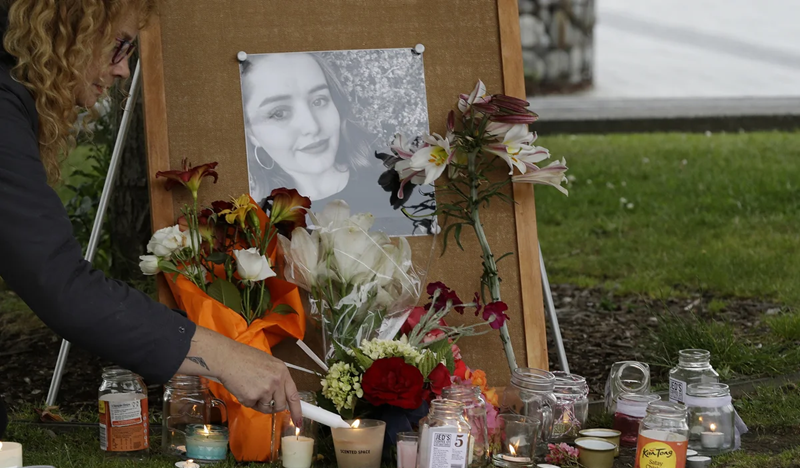The Tragic Death of Grace Millane: Could It Have Been Prevented?
The tragic death of Grace Millane has sparked a conversation about the safety of women traveling alone. Many have pointed to the prevalence of online dating apps as a contributing factor to her death, highlighting the potential dangers of meeting strangers in unfamiliar settings. Some have argued that more education and awareness about these risks could have potentially prevented this tragedy. Others have criticized the lack of accountability and responsibility taken by those who engage in violent behavior towards women.
The discussion has also turned to the importance of bystander intervention and the role that society plays in preventing violence against women. While it is impossible to know for certain if Grace Millane’s death could have been prevented, her story serves as a stark reminder of the need for greater awareness and action to protect vulnerable individuals in our society.

A Preventable Tragedy?
The issue at hand is a preventable tragedy that continues to affect communities across the globe. Despite numerous efforts to address the root causes of this problem, it persists with devastating consequences. The lack of proper education and resources in many areas only exacerbates the situation, making it difficult for individuals to make informed decisions. This tragedy is often fueled by a combination of societal pressures, personal struggles, and a lack of support systems.
It is crucial for communities to come together to address this issue and provide the necessary resources and support to prevent future tragedies from occurring. By raising awareness, promoting understanding, and offering assistance to those in need, we can work towards preventing these senseless losses and creating a safer and more supportive environment for all. It is up to each and every one of us to take action and make a difference in the lives of those who are struggling. Together, we can work towards preventing this tragedy from happening again and ensure that no one has to suffer in silence.

Investigation Findings
Investigation findings are the result of a thorough examination and analysis of a particular situation or incident. These findings are based on evidence, facts, and observations gathered during the investigation process. The goal of an investigation is to uncover the truth and provide a clear understanding of what happened. It is important for investigators to remain objective and unbiased in their approach to ensure the accuracy and credibility of their findings.
The findings may reveal patterns, trends, or discrepancies that can help identify potential issues or areas of concern. By presenting these findings, investigators can assist in making informed decisions, implementing corrective actions, or taking preventive measures to address any underlying issues. In some cases, investigation findings can lead to further inquiries or investigations to uncover additional information or evidence. Overall, investigation findings play a crucial role in identifying and addressing problems, improving processes, and ensuring accountability within organizations or communities. It is essential for investigators to communicate their findings clearly and effectively to stakeholders to facilitate transparency, understanding, and collaboration in addressing the issues at hand.
Systemic Failures
Systemic failures are instances where a network of interconnected elements breaks down, leading to a breakdown in the overall functioning of a system. These failures can occur in a variety of contexts, from healthcare systems to financial markets to educational institutions. When systemic failures occur, they can have far-reaching and devastating consequences for individuals and communities. They can erode trust in institutions, create disparities in access to resources, and perpetuate cycles of inequality.
Systemic failures often stem from deeply ingrained structural issues that have been allowed to persist over time. They can be difficult to identify and even more challenging to address because they are often deeply entrenched in the fabric of society. Addressing systemic failures requires a comprehensive and holistic approach that involves identifying root causes, implementing structural changes, and holding institutions accountable for their role in perpetuating these failures. It also requires a commitment to ongoing monitoring and evaluation to ensure that changes are effective and sustainable. Ultimately, addressing systemic failures is essential for building a more just and equitable society where all individuals have the opportunity to thrive and succeed.

Personal Accounts and Testimonies
Personal accounts and testimonies are powerful tools for sharing experiences and perspectives with others. They provide a unique insight into the lives of individuals and can help to shed light on issues that may not be widely understood. When someone shares their personal story, it can create a sense of empathy and understanding among listeners, allowing them to see things from a different point of view. These accounts can also serve as a form of validation for others who may have had similar experiences but have not had the opportunity to share them.
By hearing the stories of others, we can learn from their triumphs and struggles and gain a deeper understanding of the world around us. Testimonies can also be a source of inspiration for those who are facing similar challenges, showing them that they are not alone and that there is hope for a better future. Overall, personal accounts and testimonies are a vital part of our society, helping to bridge the gap between individuals and create a more connected and compassionate community.
